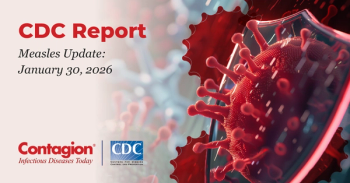
Valneva Publishes Trial Results for Inactivated, Whole-Virus COVID-19 Vaccine
Valneva’s COVID-19 vaccine candidate, VLA2001, demonstrated superior virus-neutralizing antibodies compared to the AstraZeneca vaccine.
Yesterday,
The
“This Lancet publication is a strong scientific and developmental validation of the work that has been accomplished at Valneva,” said Juan Carlos Jaramillo, MD, chief medical officer at Valneva. “We are pleased that more detailed results on our inactivated COVID-19 vaccine are now available to the scientific and broader public health communities.”
VLA2001 WAS the first COVID-19 vaccine to receive standard marketing authorization in Europe, and is the only whole virus, inactivated, adjuvanted vaccine to receive marketing authorization in Europe as a primary COVID-19 vaccination in persons 18-50 years old.
The phase 3 trial, COV-COMPARE (
In the second arm of the trial, participants 18-29 years were administered 2 doses of open-label VLA2001 on study days 1 and 29. The primary outcome was immune response to a 2-dose regimen of VLA2001 after day 43 in adults 30 years and older, as compared to 2 doses of AstraZeneca’s COVID-19 vaccine. The investigators assessed the superiority of geometric mean titers (GMTs) of neutralizing antibodies and noninferiority of seroconversion rate between the 2 vaccines.
VLA2001 was found to produce higher neutralizing GMTs than ChAdOx1-S, at 803.5 vs 576.6. VLA2001 also exhibited noninferior seroconversion rates. Adverse events were reported in 93.6% of participants in the open-label VLA2001 group, 88.8% in the randomized VLA2001 group, and 98.1% of the ChAdOx1-S cohort participants. Most of the reported adverse events were mild-to-moderate in severity.
VLA2001 is produced using Valneva’s Vero-cell platform, which utilizes manufacturing technology from the company’s licensed Japanese encephalitis vaccine, IXIARO. VLA2001 consists of inactivated whole virus particles of SARS-CoV-2 with high S-protein density, combined with two adjuvants, alum, and CpG 1018.
Newsletter
Stay ahead of emerging infectious disease threats with expert insights and breaking research. Subscribe now to get updates delivered straight to your inbox.
































































































































